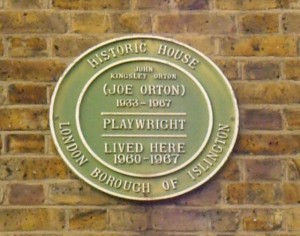Out and about in Legal London
All of our first year law undergrads took part in an exercise in week one of their LLB where they escaped City and went to visit a number of buildings of significance in the local area, before tackling some research questions.
They were then asked to write a blog post inspired by their travels. 21 winners were selected from all those posts submitted – this is one of those – thanks to Lara-Luisa Williams.
“Out and about”. A phrase I had experienced first-hand during my first week at university. Having never explored London to the extent of seeing new things, my immediate reaction was dread. My instincts told me that London was not an entirely interesting city, unless it involved clubbing or festivals. But that is not to say I was not going to be open minded about it. Snacks packed and map in hand – I was ready to do this. This was my opportunity to be a tourist in my own city and I was not going to miss it.

Stumbling across 27b Canonbury Square, it did not appear to be much. However, having known the writer and journalist George Orwell had previously lived here had changed my perception greatly. His work on totalitarian states and dystopias still influences writers to this day; from the cold war to the popular show Big Brother. My mind began to wonder to the surroundings of his home – around Canonbury Square and to the indistinguishable neighbours of 27b. The surveillance cameras and traffic wardens I noticed as I focussed deeper onto my location highly mirrored what Orwell told to be a totalitarian state. I guess “Animal Farm” was the first thing that jumped to mind. A far jump from the description of the pigs patrol in Orwell’s book, I had begun to question our underlying forceful nature to fit into society; constantly worrying to avoid trouble with the law.
My eyes travelled further as we moved to our next location; there were pronounced class differences as we roamed from road to road. One street would be filled with large detached houses, whereas the next would consist of clustered blocks of run-down flats. Even the vehicles had changed from Mercedes and BMW’s to bicycles chained to railings of fences. This greatly reminded me of where I grew up in Brazil; where new corporate buildings would be built in walking distance of the ‘favelas’, where businessmen would drive past people begging on the street just to beg their boss for a raise, where poor children would bear witness to violent crime every day, yet the only published news would be where the President was last seen eating dinner. Ironically, the only times discussion about fixing all of this inequality is brought up, is close to the general election dates.
“All animals are equal, but some animals are more equal than others” [1]

Wondering onto Noel Street, I recognised where I was immediately, from formerly visiting here earlier this year. As this was once the house of Joe Orton, the radical famous playwright, I immediately gained interest. Orton was convicted for defacing public library books under the accusation of ‘malicious damage’ to which he found was unjust, claiming it was because of his homosexuality.
Upon staring at the house, imagining the walls of the interior covered in his prints, I prepared to question the nature of his arrest – was it simply based on his homosexuality or something far more trivial?
In many countries around the world, public shaming is used to reinforce the power of the state and to essentially ‘teach a lesson’ to witnesses. Arguably, Orton’s arrest for the defacing of library books could be seen as the British government publicly humiliating the playwright and his partner; hence, the message of defacing any council property is not to be taken lightly. Media would normally be used as a tool to support the government by creating a scapegoat – much like they do today – and describing the incident as a gorilla in the roses. I began to think of more modern day examples, such as Iran. Since the Islamic Revolution, they have become extremely conservative – therefore, any ‘religious’ offences would be punished by being flogged then hanged. Although corporal punishment could be seen as a lot more severe in comparison to public shaming, the message is essentially the same – do something the government does not like and you shall suffer. A key aspect of any totalitarian state.
On a more subjective note, I had not only learnt of parts of London I would not have previously known, but I have also made friends, whom I would not have spoken to otherwise. Different backgrounds, languages and cultures make me appreciate London for the diverse city that it is.
[1] Animal Farm, George Orwell – Penguin Classics; New Ed edition (24 Feb. 2000)
